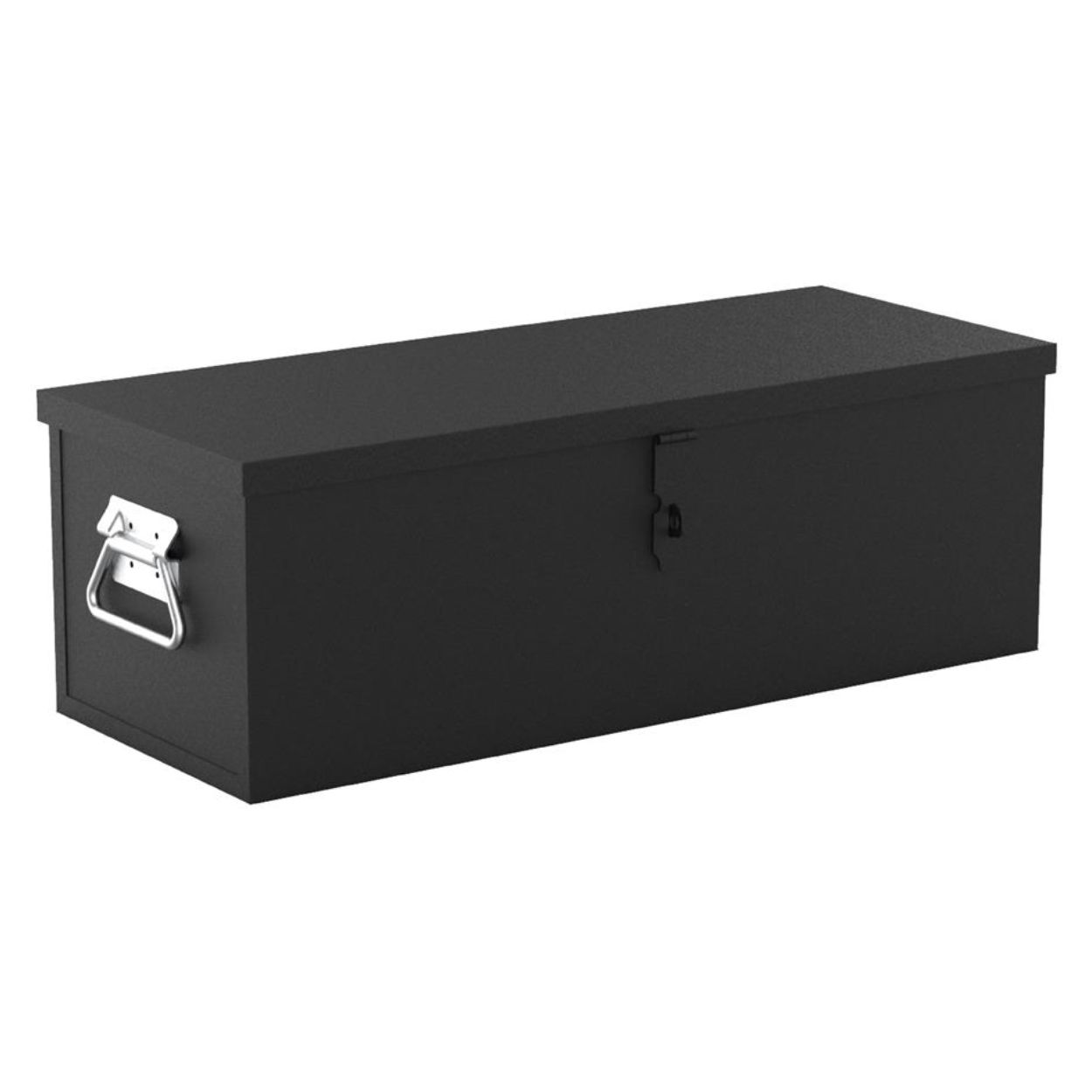
- +86 180 5858 6702
- [email protected]
- Yongjiang Industrial Park, Ningbo, Zhejiang
This comprehensive guide delves into the critical question: what is the best material for a toolbox? As a leading manufacturing plant specializing in toolboxes, we’ll explore the pros and cons of various materials, including aluminum, steel, and plastic, to help you determine which good toolbox best suits your needs. Whether you’re a home improvement retailer, an industrial distributor, a tool manufacturer, an e-commerce seller, or involved in construction, automotive, or specialized niches, understanding the nuances of toolbox materials is crucial. This article is worth reading because it provides expert insights into the factors that make a quality toolbox, helping you make informed decisions that enhance your business and satisfy your customers.
Tool boxes come in various shapes, sizes, and materials, each designed to meet specific needs. From small, portable tool boxes ideal for DIY enthusiasts to large, heavy-duty tool chests used in professional workshops, the options are diverse. Different types of tool boxes include handheld tool boxes, rolling tool chests, truck-mounted tool boxes, and stationary tool cabinets.
The material used in a toolbox significantly impacts its durability, weight, portability, and resistance to environmental factors like rust and corrosion. Common materials include steel, aluminum, and plastic. Understanding the characteristics of each material is essential when selecting the right tool box for your needs. Our Tool Boxes cater to various needs, from simple storage to heavy-duty use.
Steel toolboxes are renowned for their exceptional strength and durability. Steel is a robust material that can withstand heavy loads and rough handling, making it a popular choice for professionals who need a reliable tool storage solution. Steel tool boxes are ideal for storing heavy power tools, hand tools, and equipment, providing a secure and long-lasting storage option.
However, steel is susceptible to rust and corrosion, especially in humid or wet environments. To mitigate this, many steel toolboxes are coated with protective finishes, such as powder coating or galvanization. While steel toolboxes are generally heavier than aluminum or plastic options, their superior durability often outweighs the added weight, particularly in industrial settings. Our Tool Cabinets are an excellent example of durable steel construction.
Aluminum toolboxes offer a compelling combination of lightweight design and impressive durability. Aluminum is naturally resistant to rust and corrosion, making aluminum tool boxes an excellent choice for use in various weather conditions. These toolboxes are particularly popular among professionals who need to transport their tools frequently, such as contractors and field technicians.
Aluminum toolboxes are generally lighter than steel toolboxes, which enhances their portability. Despite being lightweight, aluminum is a strong material that can withstand considerable wear and tear. Many aluminum toolboxes feature reinforced construction, such as double-walled panels and heavy-duty hinges, further enhancing their durability. Our rolling tool cart showcases the benefits of aluminum construction.
Plastic tool boxes offer a lightweight and budget-friendly alternative to steel and aluminum options. These toolboxes are typically made from high-density polyethylene (HDPE) or polypropylene, which are durable and resistant to impact, corrosion, and most chemicals. Plastic tool boxes are ideal for DIY enthusiasts, homeowners, and professionals who need a portable and easy-to-handle tool storage solution. They are also good for storing tools that are sensitive to moisture, as plastic does not rust.
While plastic tool boxes may not offer the same level of durability as steel or aluminum toolboxes, they are more than adequate for light to moderate use. Plastic boxes are known for keeping tools organized with molded compartments and trays. However, it’s essential to choose a high-quality plastic toolbox with sturdy construction to ensure it can withstand regular use. Our portable storage box is an example of a well-designed plastic toolbox.
Portability is a crucial factor to consider when selecting a toolbox, especially if you need to carry your tools around a job site or transport them between locations. The material of the toolbox significantly influences its weight and ease of handling. Aluminum toolboxes are generally the most portable option due to their lightweight nature.
Steel toolboxes, while more durable, are also heavier, which can make them less convenient for frequent transport. Plastic tool boxes offer a good balance between weight and durability, making them a practical choice for those who prioritize portability but also need a reasonably sturdy toolbox. When choosing a toolbox based on portability, consider the weight of the tools you’ll be carrying and how frequently you’ll need to move the toolbox.
Durability is paramount when choosing a toolbox, particularly if it will be used in demanding environments or exposed to harsh weather conditions. Steel toolboxes are often considered the most durable option, capable of withstanding heavy impacts and rough handling. However, they require proper maintenance to prevent rust and corrosion.
Aluminum toolboxes offer excellent durability and are naturally resistant to rust and corrosion, making them suitable for use in various weather conditions. While aluminum may dent more easily than steel, it is less likely to crack or shatter under impact. Plastic tool boxes, while less durable than steel or aluminum, can still provide adequate protection for your tools in less demanding situations. The lifting workbench we offer is built to withstand tough conditions.
Choosing the right tool box material depends on several factors, including the type of tools you need to store, your work environment, how often you transport your tools, and your budget. For heavy-duty industrial use, a steel toolbox might be the best choice due to its exceptional strength and durability.
If you prioritize portability and resistance to corrosion, an aluminum toolbox is an excellent option. For light to moderate use or situations where budget is a primary concern, a high-quality plastic toolbox can be a practical choice. Consider the specific demands of your work and choose a toolbox material that aligns with those needs.
A truck toolbox is a specialized type of tool storage designed to be mounted in the bed of a pickup truck. When selecting a truck toolbox, durability, security, and weather resistance are key considerations. Aluminum truck toolboxes are a popular choice due to their lightweight nature, resistance to corrosion, and ability to withstand various weather conditions.
Look for a truck toolbox with a secure locking mechanism to protect your tools from theft. Additionally, consider features such as weather seals to keep moisture out and gas struts for easy lid operation. The construction quality is crucial, so opt for a truck toolbox with reinforced panels and heavy-duty hinges. Our Tool Cabinets Manufacturer expertise ensures high-quality truck toolboxes.
Proper maintenance is essential to ensure the longevity of your toolbox, regardless of the material it’s made from. For steel toolboxes, regularly inspect for signs of rust or corrosion and apply a protective coating if necessary. Clean the toolbox with a mild detergent and water, and dry it thoroughly to prevent moisture buildup.
Aluminum toolboxes require less maintenance due to their natural resistance to rust and corrosion. However, it’s still a good idea to clean them periodically to remove dirt and grime. Plastic tool boxes should be cleaned with a mild detergent and water, and inspected for cracks or damage. Avoid storing heavy items on top of a plastic toolbox to prevent warping or cracking. Proper maintenance will help your tool storage last longer.
The toolbox industry continues to evolve, with manufacturers developing new materials and designs to meet the changing needs of users. Innovations in materials include the use of advanced alloys and composites that offer enhanced strength and durability while remaining lightweight. For example, some modern toolboxes incorporate carbon fiber or fiberglass panels to reduce weight without sacrificing strength.
Design innovations include features such as modular compartments, integrated power strips, and built-in LED lighting. Some toolboxes also feature advanced locking mechanisms, such as biometric locks or Bluetooth-enabled locks that can be controlled via a smartphone app. These innovations enhance the functionality, security, and convenience of modern toolboxes. Our smart tool cabinets incorporate many of these cutting-edge features.
What are the benefits of a rolling tool chest?
A rolling tool chest offers the advantage of portability, allowing you to easily move your tools around a workshop or job site. These chests typically feature multiple drawers for organized tool storage and heavy-duty casters for smooth movement. Our Detachable Rolling Toolchest is an excellent example.
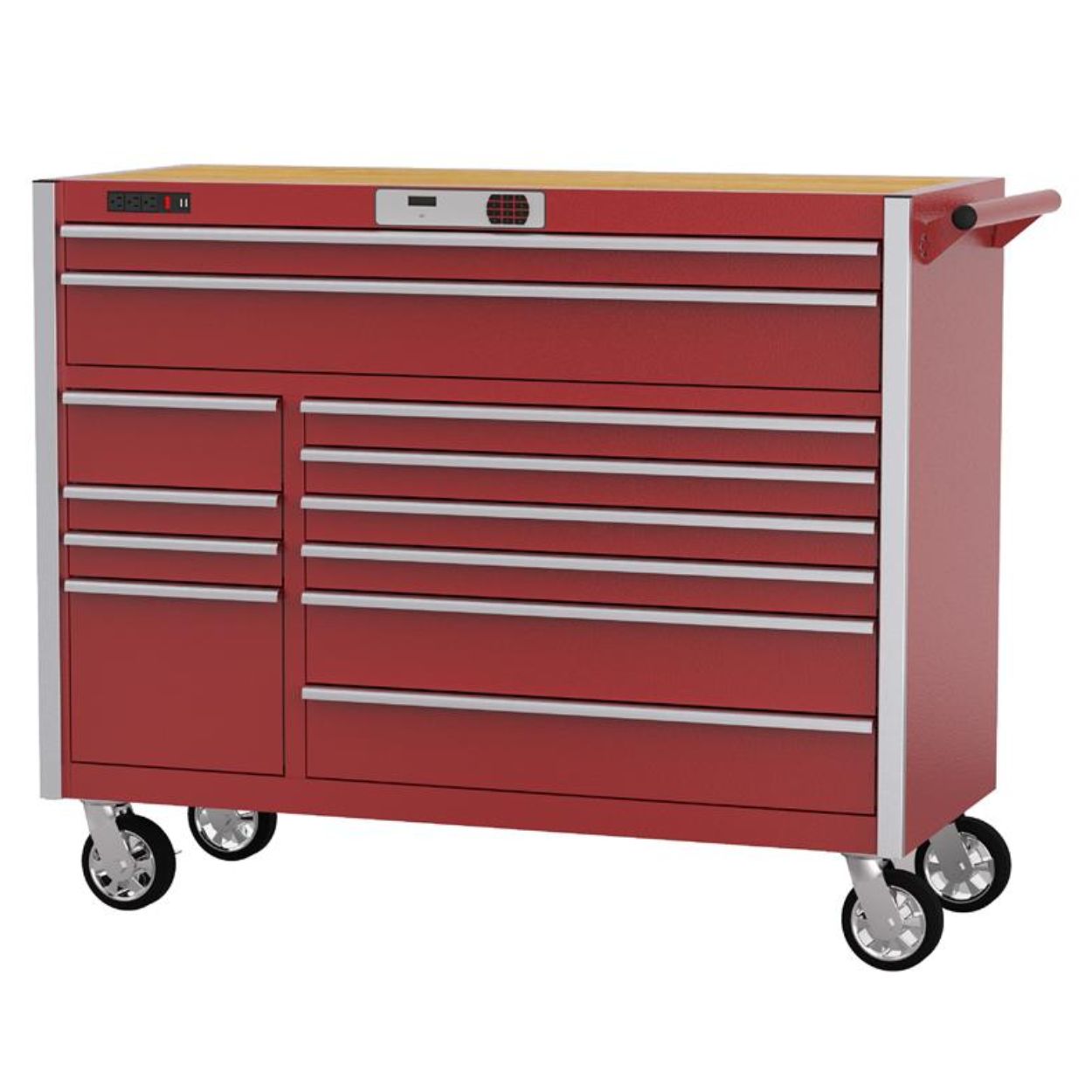
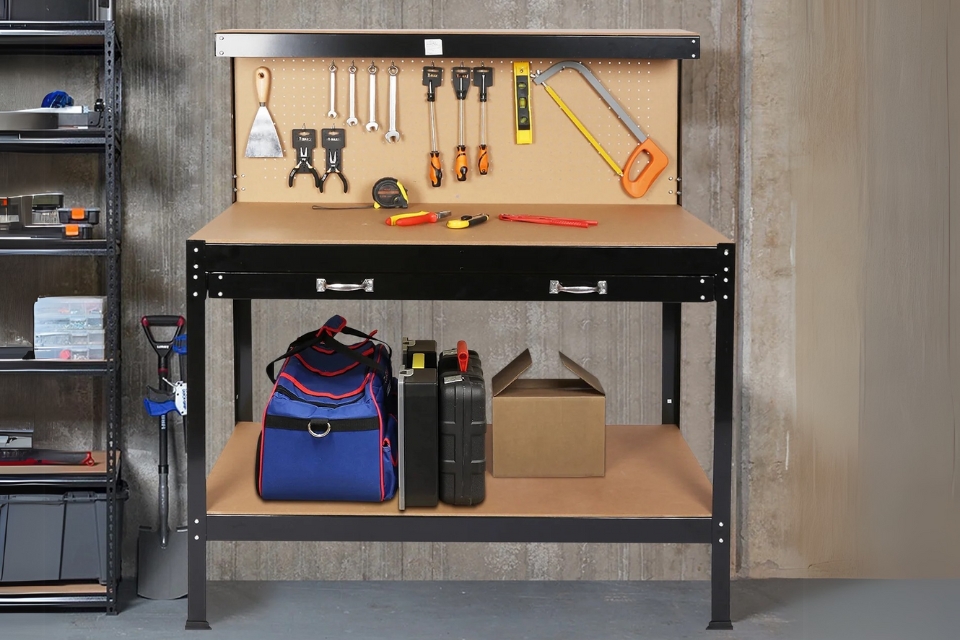
This article delves into the differences between workbenches and workstations, focusing on their applications within various industrial settings.
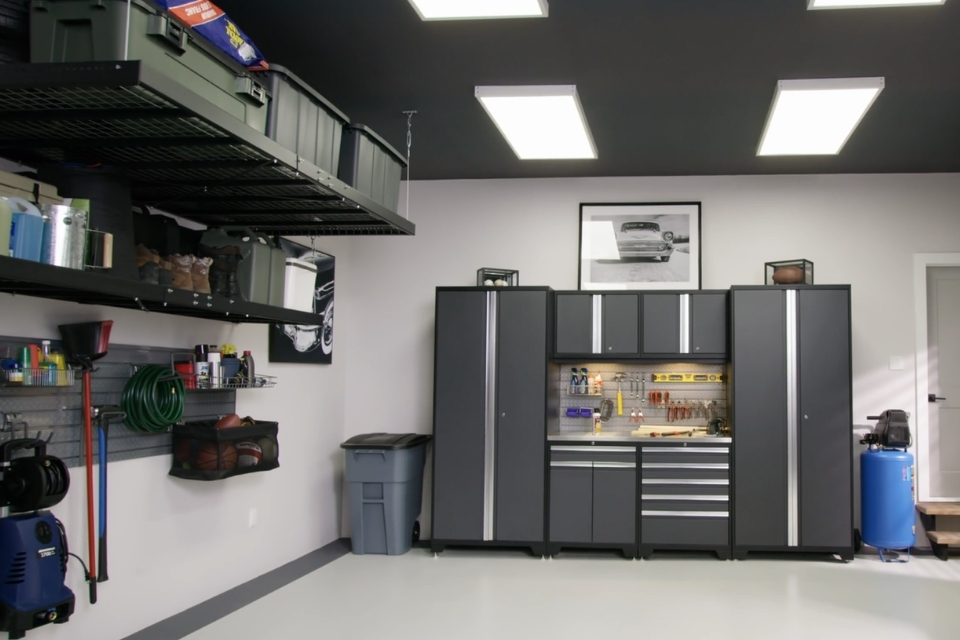
This article delves into the crucial question of whether garage cabinets need backs, exploring the structural and functional implications of this design choice.
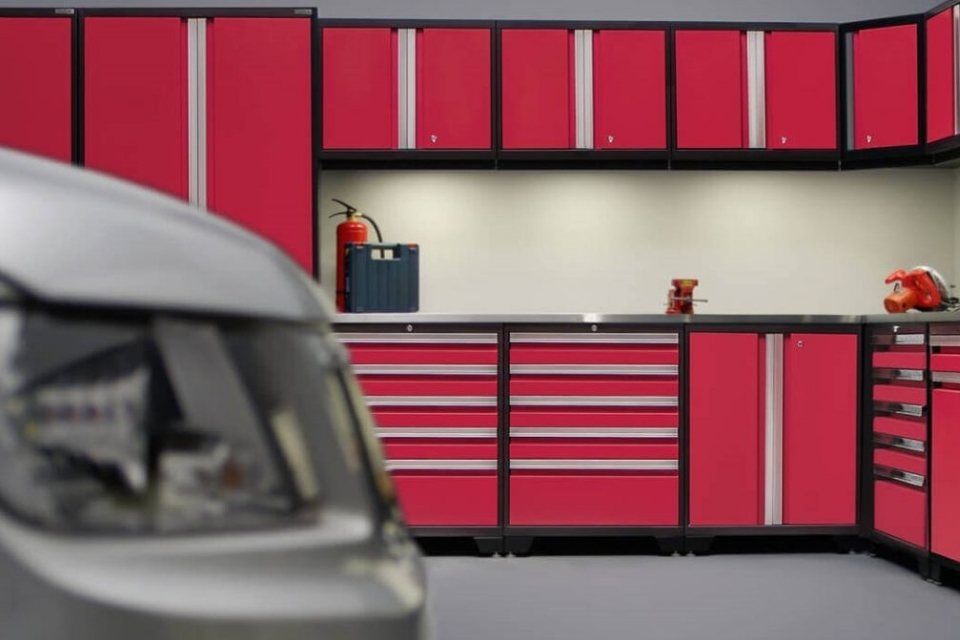
This article provides a comprehensive guide to designing an effective garage storage system, offering practical tips and innovative garage storage ideas to transform your cluttered garage into an organized and functional space.
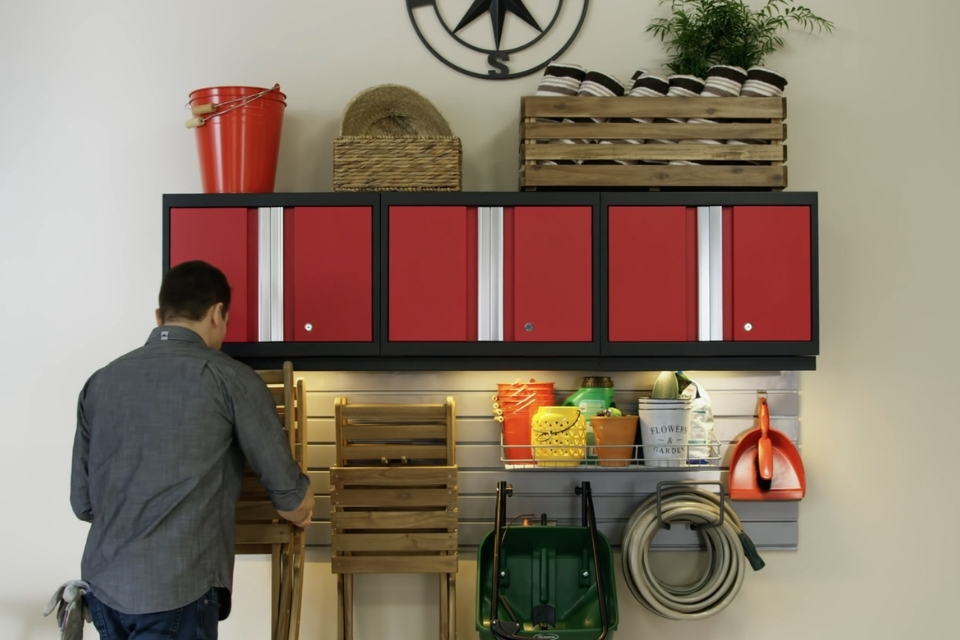
This article offers a comprehensive guide to tool box organization, providing practical tips and innovative organization ideas to help you arrange your tools efficiently.
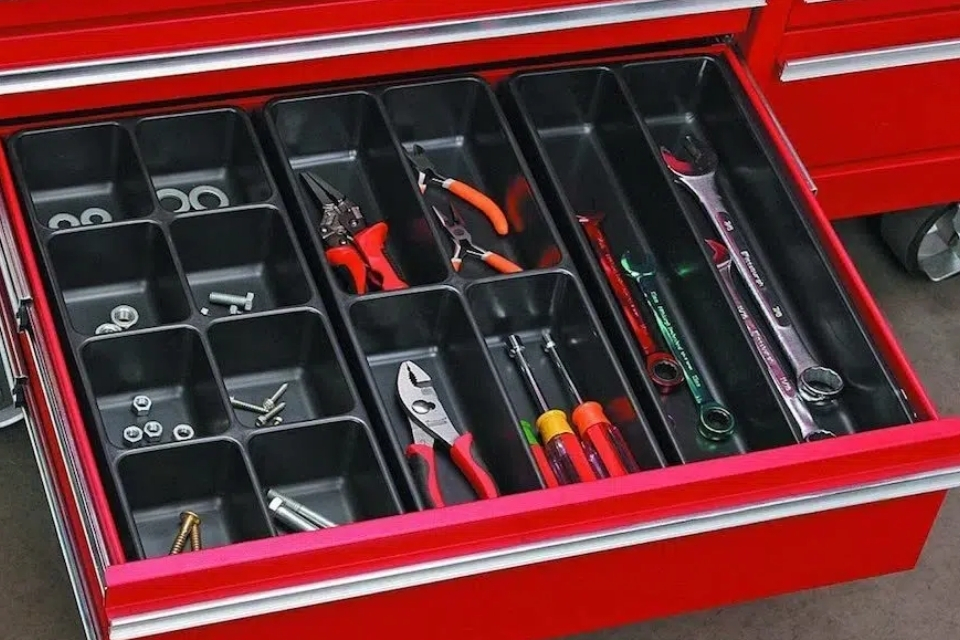
This article provides a comprehensive, step-by-step guide to installing a truck tool box, ensuring your tools are securely stored and easily accessible.

This article explores the optimal depth for garage cabinets, a crucial factor in maximizing garage storage and functionality.

This article discusses the significance of high-quality garage storage cabinets for various businesses.

This article will delve into the world of tool boxes, exploring the various types of tool boxes available, their specific uses, and the factors to consider when choosing the right one for your needs.

We are the leading factory for tool cabinets product in China with fast delivery, free custom services and fantastic services.
@ 2024 The Tool Cabinets. All right reserved.
Fill out the form below, and we will be in touch shortly.